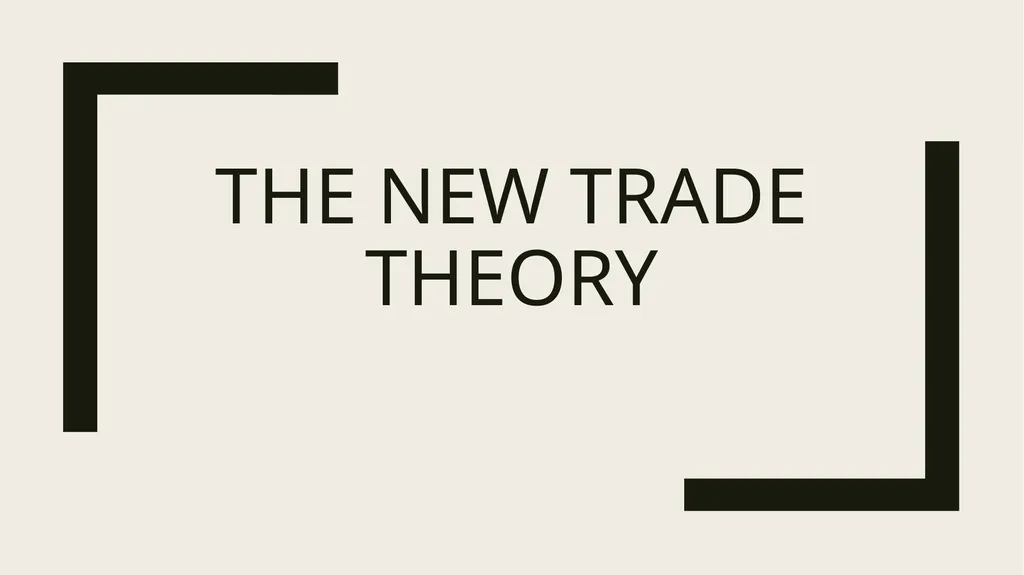
Author : karlyn-bohler | Published Date : 2025-05-24
Description: The New Trade Theory Emerged in the 1970s by a number of economists Countries do not necessarily specialize and trade solely to take advantage of their differences in resource endowments or technology They also trade because ofDownload Presentation The PPT/PDF document "" is the property of its rightful owner. Permission is granted to download and print the materials on this website for personal, non-commercial use only, and to display it on your personal computer provided you do not modify the materials and that you retain all copyright notices contained in the materials. By downloading content from our website, you accept the terms of this agreement.
Here is the link to download the presentation.
"The New Trade Theory • Emerged in the 1970s by"The content belongs to its owner. You may download and print it for personal use, without modification, and keep all copyright notices. By downloading, you agree to these terms.













